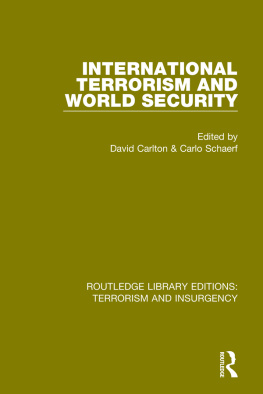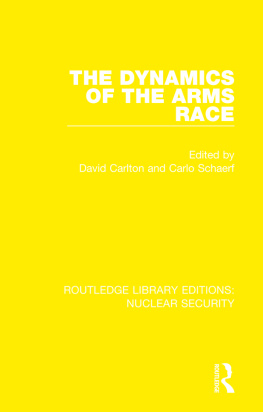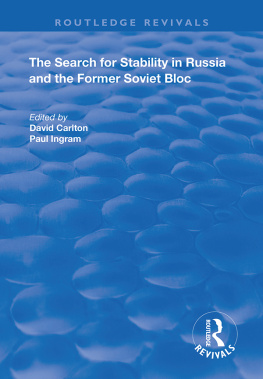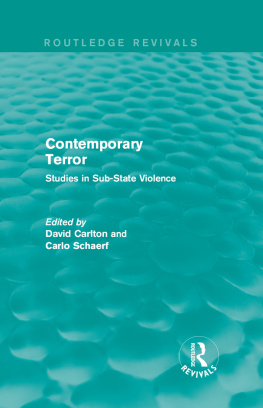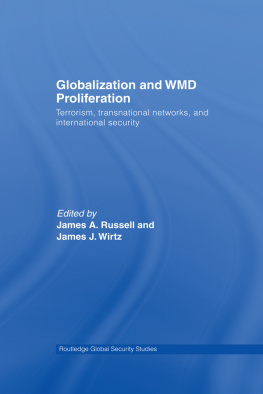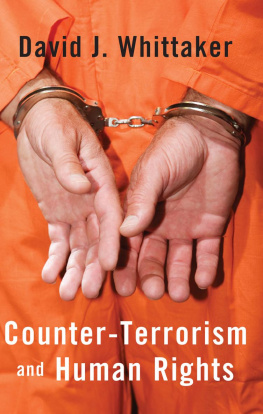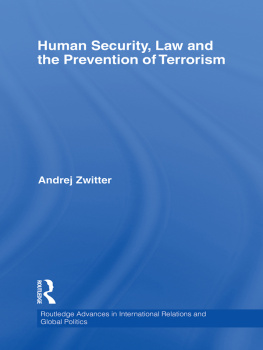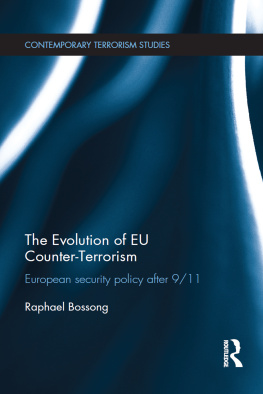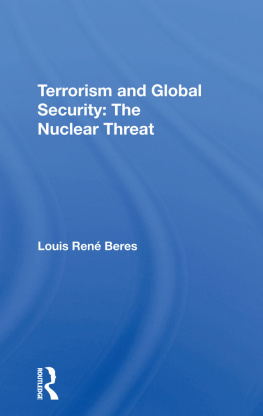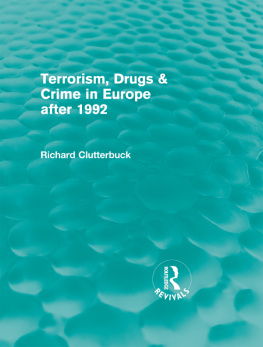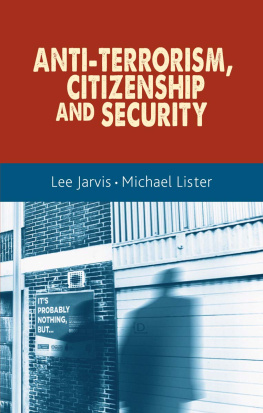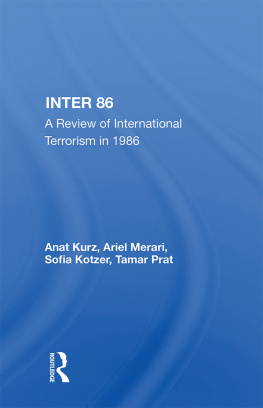David Carlton - International Terrorism and World Security
Here you can read online David Carlton - International Terrorism and World Security full text of the book (entire story) in english for free. Download pdf and epub, get meaning, cover and reviews about this ebook. year: 1975, publisher: Routledge, genre: Politics. Description of the work, (preface) as well as reviews are available. Best literature library LitArk.com created for fans of good reading and offers a wide selection of genres:
Romance novel
Science fiction
Adventure
Detective
Science
History
Home and family
Prose
Art
Politics
Computer
Non-fiction
Religion
Business
Children
Humor
Choose a favorite category and find really read worthwhile books. Enjoy immersion in the world of imagination, feel the emotions of the characters or learn something new for yourself, make an fascinating discovery.
- Book:International Terrorism and World Security
- Author:
- Publisher:Routledge
- Genre:
- Year:1975
- Rating:4 / 5
- Favourites:Add to favourites
- Your mark:
- 80
- 1
- 2
- 3
- 4
- 5
International Terrorism and World Security: summary, description and annotation
We offer to read an annotation, description, summary or preface (depends on what the author of the book "International Terrorism and World Security" wrote himself). If you haven't found the necessary information about the book — write in the comments, we will try to find it.
International Terrorism and World Security — read online for free the complete book (whole text) full work
Below is the text of the book, divided by pages. System saving the place of the last page read, allows you to conveniently read the book "International Terrorism and World Security" online for free, without having to search again every time where you left off. Put a bookmark, and you can go to the page where you finished reading at any time.
Font size:
Interval:
Bookmark:
DAVID CARLTON & CARLO SCHAERF

by Routledge
2 Park Square, Milton Park, Abingdon, Oxon OX14 4RN
711 Third Avenue, New York, NY 10017
A catalogue record for this book is available from the British Library
eISBN: 978-1-315-69683-6 (Set)
ISBN: 978-1-138-89977-3 (Volume 3)
eISBN: 978-1-315-70764-8 (Volume 3)
The publisher has gone to great lengths to ensure the quality of this reprint but points out that some imperfections in the original copies may be apparent.
The publisher has made every effort to trace copyright holders and would welcome correspondence from those they have been unable to trace.

1975 International School on Disarmament and
Research on Conflicts Fifth Course
210 St Johns Road London SW 11
by Biddies of Guildford Ltd
bound by Redwood Burn Ltd, Trowbridge and Esher
| J. Henk Leurdijk |
| Brian M. Jenkins |
| Gaston Bouthoul |
| Steven J. Rosen and Robert Frank |
| George Sliwowski |
| J. Bowyer Bell |
| Daniel Heradstveit |
| Herbert F. York |
| Thomas Blau |
| Bernard T. Feld |
| Victor Gilinsky |
| L. J. Dumas |
| Tom Stonier |
| Pierre Hassner |
| Nino Pasti |
| Thomas Blau |
| Ciro E. Zoppo |
| David Carlton |
| Michael Nicholson |
| John H. Barton |
| Lillian Davis |
Font size:
Interval:
Bookmark:
Similar books «International Terrorism and World Security»
Look at similar books to International Terrorism and World Security. We have selected literature similar in name and meaning in the hope of providing readers with more options to find new, interesting, not yet read works.
Discussion, reviews of the book International Terrorism and World Security and just readers' own opinions. Leave your comments, write what you think about the work, its meaning or the main characters. Specify what exactly you liked and what you didn't like, and why you think so.

